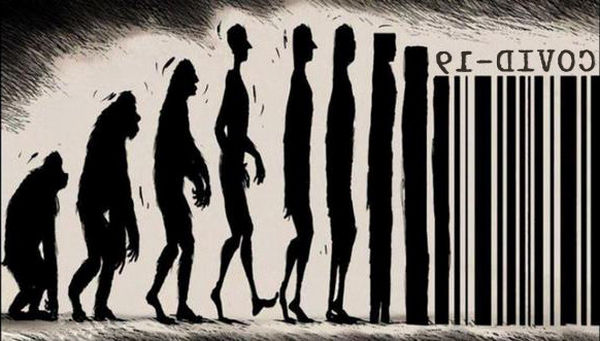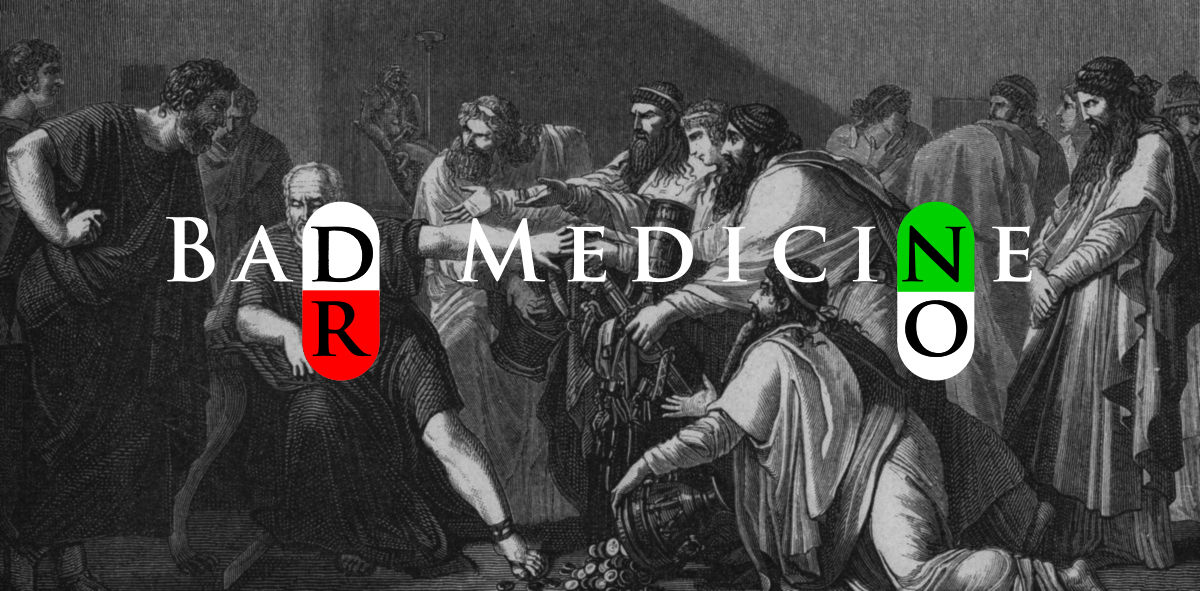The Commodification of Covid–19

This last week, another rapid covid–19 test hit the fan. The story is becoming boringly familiar. A company announces a new covid–19 test, and puts a high gloss on the test’s performance. Ministers respond by placing large orders. Later, it turns out the company has been polishing a turd, as real world studies show the test’s performance is, err, crap, and ministers find that instead of getting more bang for their buck, they have got more crap for their cash. Such are the rewards for ministers who admire their reflections on the faces of polished turds. What made this particular turd/fan disintegration situation more notable than some is the suggestion, made by the BMJ and denied by the DHSC, that the government had known all along it was buying a polished turd, but deliberately suppressed the information, because it would get in the way of procurement.
The companies lining up at the rim of the procurement pot are of course merely doing their best to ensure a good crisis doesn’t go to waste. A major crisis like a pandemic creates, just as war does, enormous commercial opportunities. These opportunities may lie in diagnostics, treatments and vaccines rather than tanks, planes and munitions, but the dynamics are identical. Governments, with some justification, need stuff fast, but this creates a danger: the urgency legitimises the removal of normal check and balances. This is understandable, given that a crisis is a crisis, but there is still a very real flip-side, of lowered thresholds that lead to both compromised quality standards, and a bullish commodity market of buy now, ask questions later.
This much is plain to see. It starts to get even messier when the government, based on ideological prejudices, favours private sector solutions to health service problems. In the process, it commodifies a good many things ranging from research through service provision to data management, that gain no added value whatsoever in and of themselves by being privatised. At the same time, it does add add something that is absent from the public sector, the lure of profit. When you commodify something — that is, take something that should sensibly be provided as a common service for the public good, and transform it into a market commodity that is bought and sold on market terms — you add the opportunity to profit. It is that profit motive, inflamed by the enormous sums on offer in a febrile market, that encourages the ever more vigorous polishing of turds.
Nor does it end there. Back in March, parliament waved through an extraordinary but largely unreported at the time Bill — unreported because it was the time of the start of the first lockdown — which became the Contingencies Fund Act 2020. This Act, all two clauses of it, does one thing: it requires “The reference to 2 per cent is to be read as if it were a reference to 50 per cent”. This cryptic line may look like not very much, but its effect was to give the government a £266 billion wad of blank cheques that could be spent, as emergency spending, without gaining prior parliamentary approval. That’s around 66 new aircraft carries, to use Dr No’s preferred unit for covid spending. Prior to the Act, the same fund was a paltry £10.7 billion, or two to three aircraft carriers.
The trouble is that ‘without gaining prior parliamentary approval’ — that is, without any effective form of scrutiny — is a dodgy premise at the best of times. If you add in the urgency and strain of the covid pandemic, on top of a private sector leaning government ideology, and the stage is immediately set for a frenzy of commodification. Instead of beefing up NHS testing, the government is said — it has since been denied (see box)— at one point to have allocated over £100 billion (25 or so aircraft carriers) to Operation Moonshot, with the funds ear-marked for Deloitte and numerous other ‘strategic partners‘ including GSK, AstraZeneca, Optigene, DHL, G4S, Boots, Sainsbury’s and Serco, to name but a few. So far, only only a mere £18.3 billion (only getting on for five aircraft carriers) has been spent, according to Tussell, the ‘all-in-one UK public sector market intelligence platform’, which provides both an upper level analysis of what has been spent and where it has been spent.
Has Operation Moonshot done a Major Tom? A government response dated 6th October to case brought by the Good law Project claims that there was never a decision ‘to approve and commit £100 billion of public funds to “Project Moonshot”‘ and that the ‘substance’ of ‘Project Moonshot’ has been ‘subsumed’ within Serco T&T. That may be the government’s lawyers’ line, but back in the real world, mass testing pilots have happened (Manchester, failed) and are happening (Liverpool, ‘interesting’) and there are plans to roll out the testing to 67 more regions (‘very interesting’). All this activity is routinely dubbed ‘Operation Moonshot’, so the answer appears to be that while the three government monkeys see, hear and speak no moonshine, for the rest of us, Operation Moonshot is still very much in evidence.
The £18.3 billion is, of course, just for starters. The sum has already been dwarfed by two tenders put out in the first week of November that will take care of an extra £42 billion (a dozen or so aircraft carriers). The first, from PHE, is for a £22 billion ‘multi-lot national microbiology framework’, and the second from Supply Chain Organisation Ltd (aka NHS Supply Chain) for £20 billion for the supply and distribution of rapid test kits, ancillaries and services. Both are expected to extend beyond this financial year, but they will nonetheless take the total committed spend to over £60 billion (eighteen or so aircraft carriers).
The commodification of covid tied to Contingencies Fund Act 2020 is truly the golden goose that keeps on giving, and as is the way with these things, the temptation to cronyism is irresistible. Not only do we get for example duds like Dildo Harding, married to an anti-NHS Tory MP, appointed Chief Pongo of first Test and Trace, and then, in a barn door case of rewarding incompetence by promotion, the National Institute for Health Protection, but we also get contracts going to family and friends. A list compiled by the Labour MP Rachel Reeves and published by The Mirror — which Dr No joins in saying there is no suggestion of any wrongdoing, the contracts were made within the emergency rules — details a dozen contracts worth over £1 billion in which Tory buddies just happen to be the beneficiaries.
Manufactured items — testing kits, drugs, supplies, even vaccines if they become available — are better procured through transparent accountable out-sourcing, but the service elements — testing, track and trace, laboratory work — should never have been commodified and put out to tender, where the devilry of making a profit combined with private sector arrogance and incompetence dooms — as Serco Test & Trace demonstates so well — progress from day one. Instead, the NHS, the National Health Service, should have been funded to provide these services. For all its faults, and it has many, the NHS remains a superb institution at the heart of our national life, and, had it been given the resources that have instead gone to the private sector, it would have excelled in rising to the challenges thrown at us by covid–19.

It’s a shame the army, navy and air force couldn’t bid for those contracts. At least they can follow instructions and are disciplined, and could have made use of all those aircraft carriers.
Sorry, Dr. No, if this is a duplicate comment. Earlier attempt disappeared.
‘When good science is suppressed by the medical-political complex, people die’
Exec Editor Kamran Abbasi’s indictment of gov. responses to Covid-19 in the British Medical Journal:
Covid-19: politicisation, “corruption,” and suppression of science
BMJ 2020; 371 doi: https://doi.org/10.1136/bmj.m4425 (Published 13 November 2020)
Tish – no duplicate anywhere that I can see and sorry you had the nuisance of writing something only to have it disappear.
Yes, no beating about the bush this time from the all too often rather mealy mouthed blue top. This second paragraph should have been the opening one:
“Science is being suppressed for political and financial gain. Covid-19 has unleashed state corruption on a grand scale, and it is harmful to public health.1 Politicians and industry are responsible for this opportunistic embezzlement. So too are scientists and health experts. The pandemic has revealed how the medical-political complex can be manipulated in an emergency—a time when it is even more important to safeguard science.”
Dr No, thank you. The image at the top is mighty powerful, and one I believe needs to be taken note of by everyone. And despite this obviously being a serious situation (and blog) I have to thank you for the best fit of the giggles I have had in months. With tears streaming down the cheeks for ten minutes by the time I got to ‘…more crap for their cash’, I was off again for another ten minutes with the rest of the paragraph. Please call a doctor; my stomach hurts! But a much needed laugh in these times of everything else you have so clearly outlined here, so, thank you.
I wonder, are we really just simply in a pandemic of spending? They have been given the keys to the piggy bank and, by heck, they’re just going crazy in the sweet shop, and now not daring to admit how sick they feel?